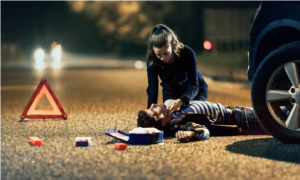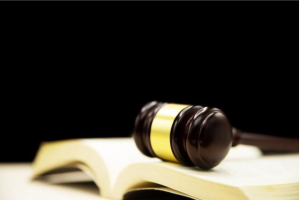
Accidents happen. But when they involve injuries, the question of who pays for the damages is bound to come up, and sometimes the at–fault party may try to wriggle out of paying up.
Proving liability is the most crucial aspect of getting the justice and compensation that you deserve. The judge and jury need to see solid proof of the other party’s negligence, which led to the losses or damages that you suffered.
To prove liability, you need to first understand the elements of negligence. Experienced firms, like the The Flood Law Firm, LLC, have a team of accident attorneys who are specialized in helping accident victims get the justice they deserve. You don’t have to take on the role of proving liability to the court. Their years of experience has equipped them with the right amount of skill, expertise, and resources to fight your legal battles.
When navigating the complexities of a car accident case, having the guidance of a skilled legal professional is essential. Consider consulting with a sarasota car accident attorney to understand the elements of negligence and fight for justice.
What are the Elements of Negligence?
Here are the elements of negligence that can make or break your personal injury case:
Duty of care
As citizens, we all have an invisible contract that exists between everyone, requiring them to behave reasonably and avoid causing harm to others.
This legal obligation is known as the “duty of care.” Drivers have a duty to obey traffic laws, property owners must maintain safe premises, and medical professionals have a duty to provide competent care.
Breach of duty
Here, you need to demonstrate that the other party failed to fulfill their duty of care. This could involve a specific action or inaction.
For example, a driver who runs a red light breaches their duty of care to other drivers and pedestrians. A property owner who fails to fix a broken handrail on their stairs breaches their duty to provide a safe environment for all their tenants.
The specifics of the breach will depend on the situation, but it’s essentially showing the court that the other party acted negligently.
Causation
Causation is the bridge between the at-fault party’s breach of duty and your injuries. It’s not enough to show the other party’s actions were a contributing factor; they must be the direct and proximate cause of your harm.
Let’s say a car runs a red light but narrowly avoids hitting you. While the driver breached their duty, they wouldn’t be liable for any injuries you didn’t sustain in the near miss.
Damages
This refers to the losses you suffered due to the accident. It encompasses tangible costs like medical bills, lost wages due to missed work, and property damage.
It also considers intangible losses like pain and suffering, emotional distress, and loss of enjoyment of life.
You’ll need documented evidence of these losses, such as medical records, pay stubs, and repair estimates, to claim fair compensation.

Strategies for Fighting Injustice After an Accident
As a victim of an accident, you are entitled to compensation for your losses. Here are a few strategies you could employ to fight any unjust schemes the at-fault party throws at you.
Seeking Legal Counsel
A lawyer can be your strongest ally in a personal injury case. They understand personal injury law to the fullest extent, and they can also help you combat the tactics insurance companies might use to railroad you. If negotiations fail, your lawyer will represent you in court, ensuring your rights are protected throughout the legal process.
Negotiating with Insurance
Insurance companies are businesses, and their goal is to minimize payouts to victims like you. You cannot fall for their traps. For starters, you need to gather documentation of your medical bills, lost wages, and other accident-related expenses to understand the value of your claim. Wait until you have a clearer picture of your injuries and related costs before accepting a settlement offer. If the insurance company’s offer seems unfair, don’t be afraid to walk away from the negotiation table. Your lawyer can advise you on your options.
Taking the Case to Court
If negotiations fail and you believe you deserve more compensation, you may need to take the case to court. Your lawyer will work with you to gather evidence, prepare witnesses, and present a strong case in court.
The responsibility lies with you to prove the other party’s negligence caused your injuries. This is why it is essential to hire a competent lawyer who can present your case effectively.
The judge or jury will decide the outcome of the case. If successful, you could be awarded compensation for your medical bills, lost wages, and pain and suffering.